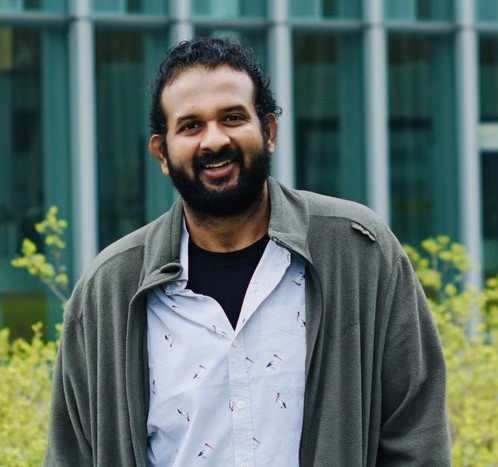702 N Walnut Grove Ave
Bloomington, IN 47405-2204

Dr. Lakshman is a postdoc at the Shafer lab and studies the biology of time. He studied Zoology, Botany, and Chemistry as an undergrad at the University of Calcutta in India during which he developed a keen interest in population biology, ecology and evolution, and animal behavior. Since his undergrad days he has carried out research on the evolution of animal timekeeping. He received his Ph.D. from the Jawaharlal Nehru Center for Advanced Scientific Research, Bengaluru, India. After his Ph.D., he joined Prof. Shafer at the Advanced Science Research Center, City University of New York after which he moved to the Gill Institute to continue his research on circadian rhythms. Circadian rhythms are endogenous rhythms in behavior, physiology, and metabolism and the mechanisms that drive these rhythms are collectively referred to circadian clocks. These clocks must maintain a delicate balance between flexibility and rigidity. For instance, circadian clocks must be able to adapt and adjust to changing seasons and jetlag (flexibility), but they must not, for instance, reset themselves every time they are exposed to a small amount of light in the middle of the night (rigidity). Abhilash is interested in developing new ways to understand how the clock neuron network in the brain strikes the proper balance between flexibility and rigidity of the circadian clock in response to light and temperature cues from the environment, and their implications on metabolism. He has also developed theoretical frameworks and analytical tools to study rhythmic behaviors.